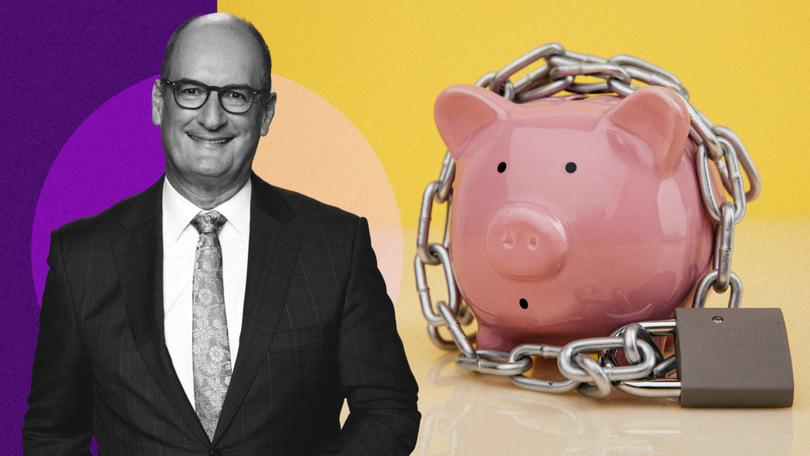DAVID KOCH: Aussies making lockdown-style sacrifices to ride out cost-of-living crisis
DAVID KOCH: Many Australians are adopting a lockdown budget, similar to that imposed on us during the pandemic. Here’s why.

The cost-of-living crisis is forcing many Australians to adopt a lockdown budget, similar to that imposed on us during the pandemic, to survive.
Ahead of next Wednesday’s all important June quarter CPI figures which will prove pivotal to the Reserve Bank board meeting’s interest rate decision on the following Monday and Tuesday, average Australians are making big sacrifices to survive financially.
During lockdowns similar sacrifices were imposed on us to beat COVID. No holidays, no restaurants, delaying marriages, no wandering the shops. It was a simpler, less complicated, and cheaper, life which saw savings levels skyrocket to record levels.
Sign up to The Nightly's newsletters.
Get the first look at the digital newspaper, curated daily stories and breaking headlines delivered to your inbox.
By continuing you agree to our Terms and Privacy Policy.For many it was a wake-up call that a simpler, cheaper lifestyle had its attractions from both a mindfulness and financial perspective.
Today, lockdown budgeting is back. Australians are putting their social lives on hold, postponing holidays and delaying big life events like marriage and children in a “cost-of-lifestyle lockdown”.
New data from Compare the Market reveals more than three-quarters of Australians will be making tough decisions to reduce spending in order to cope with rising living costs over the next 12 months.

Almost half said they would socialise less (45 per cent), while 37 per cent would put their holiday plans on ice to save more to pay for other living costs.
Some people said they would be making lifestyle changes such as moving to better paying jobs, working remotely to save on transport or moving somewhere cheaper.
Some even said important milestones would be pushed back including marriage and starting a family.
Just 23 per cent of Australians said they would not be making any lifestyle changes due to the cost of living.
The latest ABS figures show that discretionary spending has shrunk by 1.9 per cent in the year to May but we’re forking out more for essential services, where spending is up 2.3 per cent.
This new survey shows that discretionary spending is set to shrink even further over the next 12 months. And that’s exactly what RBA governor, Michele Bullock, challenged us to do to fight the surge in inflation.
The economic theory is that by cutting spending we reduce demand for goods and services which should (in theory) reduce pressure on prices going up and feeding into inflation.
To help us cut spending the RBA puts up interest rates so we spend any spare cash on higher loan repayments than at the shops.
In effect, the RBA is forcibly redirecting the income of borrowers to their loan rather than their lifestyle.
Unfortunately, in the battle against inflation, those lifestyle sacrifices haven’t so far had a huge impact on bringing down the cost of living because other factors like construction costs, rents and insurance premiums have surged. All factors beyond the immediate control of consumers.
I hope these lifestyle sacrifices will improve next week’s CPI figure to head back toward the RBA’s 2 to 3 per cent target band and, if not, I hope Ms Bullock and the RBA board take those sacrifices into account if they are considering an interest rate rise.
The cost-of-living squeeze has certainly focused Australian households on managing their financial budgets. COVID lockdowns taught us to be disciplined because we had no choice but to stay at home and save our money. Now a lot of families are tapping into that same mentality to ride out the cost-of-living crisis.
Fighting the fear of missing out can be tough, but being sensible and tucking some money into an offset or savings account could put you in a better position for the long term.
But what I find more concerning is seeing people putting off things they might regret, like starting a family.
You might think the only way to save is to cut back on things you enjoy, or delay big life events, but you might be surprised that there are other ways to put money back in your pocket.
Put some of your big bills like your mortgage, energy and insurances under the microscope and you may be surprised by how much you can save.
